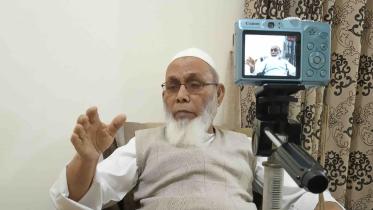Partition 1947: The Many Migrations of Siraj-ul Huq
One man’s journey through the events of 1947 and 1971, and his experience of being a refugee and then a stateless person.
4 November 2022, 17:00 PM
Calcutta’s Muslims after Partition
Before the Partition of British India (1947), Calcutta (Kolkata) was as much of a Muslim city as it was a Hindu one. Muslims who came to this city belonged to diverse classes, various sects and spoke in different tongues.
13 February 2022, 18:00 PM
Unthreading Partition: The politics of jute sharing between two Bengals
The Partition of British India (1947) had complex and wide ranging implications for the jute economy of deltaic Bengal. The border between East Pakistan and India separated Bengal’s jute fields from the jute factories. East Pakistan received more than 75 percent of the total jute growing land of undivided India, whereas all the mills were in India.
28 July 2019, 18:00 PM








